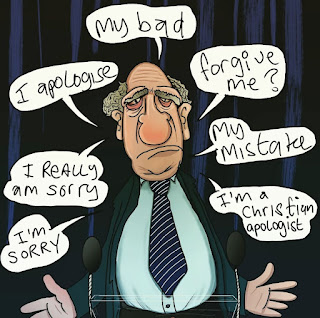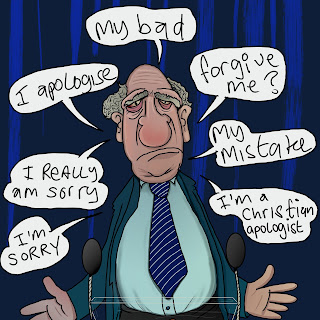Gender Pay Gap? I dunno...
Okay, Here We Go...
In 2020, The Office for National Statistics, stated that the gender pay gap for full-time workers in the UK was 7.4%. They reckoned that on average, for every £1 earnt by a man, a woman earnt just 92p. However, years later and it's reported that the gap is getting smaller, but on the contrary: women are paid 89p for every £1 a man earns on average, Sky News (2023). They say the numbers represent full-time workers, adding that introducing figures for part-time and self-employed workers would show a bigger gender pay gap, because women work part-time a lot.
Now, the government recently estimated that between 200 000 - 500 000 transgender people live in the UK. How fairly they are represented in these statistics has little to do with precision data retrieval—no clear guidance exists. If the study was entitled the cisgender pay gap, it would be non-inclusive, and honestly, does the research only want data from people who identify as the sex with which they were born? How would the poor transgender guidelines and data collection of hundreds of thousands affect the findings?
Is the claim that men are deliberately paid more than women an oversimplification, or does it have substance for a great patriarchy conspiracy? Without a doubt, factors such as social class, education, health, ethnicity, ones amount of experience, racial and cultural prejudices, as well as the type of job, will all impact on cold quantitative figures, leaving little room for conspiracy theory.
To keep on the side of real life, let's consider the female dominated sex industry. Men make up 20% of sex workers, and women make less money than men do. You see, a few years back, gentlemen escorting in London could earn a solid £1,000 an hour; where as, in comparison, ladies were limited to £150 per hour! (Marshall, 2019). Not to forget that the lowest earners could make as little as £5-£20 for providing a sexual service in a brothel or on the street (Neill & Plankey, 2017). In surveys shared by Streetlight UK (2015), 76% of people in prostitution had experienced some form of PTSD and 90% of women said they would stop if they could. It is likely this is because key male sex workers are less common, rarity almost always commands a premium.
The Canadian Psychology Professor...
Professor Jordan Peterson, (2018), argued against feminist accusations by stating the gender pay gap is not solely due to discrimination against women. He put forward a practical explanation that men and women naturally gravitate towards different work, and he played down any patriarchal theories behind the pay gap. Of course, there will be random sexist people dotted across the world of employment.
It's good to remember, STEM careers are often highly paid and attract males. These are fields that require typically left brained individuals. Peterson insisted women who choose the same career paths as men and match their hours are generally paid the same (BBC, 2018). We can see this in large bodies like the NHS. Agreed, the job market is not just the NHS.
Critics of Peterson's argument reckon that women in male dominated fields often face discrimination and harassment, which encourages high staff turnover, office for National Statistics (2020). On the other hand, women can be sexist to men in their female dominated fields, I can attest to that.
Verdict
Can we learn anything from this? Yes, numbers suggest there's a gender pay gap in the UK. Fine, but this issue doesn't seem simple enough for me to grasp. I'm sure any of us can use numbers to validate our own bias, go along with me here, for example:
Farmers These Days!
- Statistically, we found 82.4% British farmers use collies as sheepdogs.
- Many other animals including ravens, dolphins, and especially pigs, are all proven to be much more intelligent than dogs.
- 67.3% of farms keep pigs which make better candidates for sheepherding than Collies.
- Choosing Collies unfairly maintains pig unemployed. In addition, swine are slaughtered for meat but instead, canine consumption is economically more viable. This means pigs should herd livestock without swinophobia or pigudism.
We shouldn't use statistics to make questionable arguments. We all get pulled in by these quantitative assertions, but they don't always reflect the state of affairs—pigs are more intelligent than dogs, but they are more lazy and much slower. In 2020, employers with at least 250 staff, without any guidelines, chose whether they should tick the male or female box, representing their staff in the gender pay gap (Penman, 2020).
References:
Marshall, T. (2019). "The shocking male-female sex pay gap." BBC Newsbeat. [Online] Available from: https://www.bbc.com/news/newsbeat-48602674
Neill, M., & Plankey, M. W. (2017). "Sex work in the United Kingdom: policies and politics." Healthcare. 5(1): 9; doi:10.3390/healthcare5010009
Office for National Statistics. (2020). Gender pay gap in the UK: 2020. [Online] Available from: https://www.ons.gov.uk/employmentandlabourmarket/peopleinwork/earningsandworkinghours/articles/genderpaygapintheuk/2020
Penman, A. (2020) Gender pay gap and trans people [Online] Available from: https://www.hrmagazine.co.uk/content/features/gender-pay-gap-reporting-and-trans-people/
BBC. (2018). Jordan Peterson: 'Women who claim gender pay gap aren't reliable'. [Online] Available from: https://www.bbc.com/news/uk-politics-45030552
Sky News (2023). The Pay Gap Is Narrowing, But Women Still Paid Less Than Men, Sky News Analysis Suggests [Online] Available from: https://news.sky.com/story/gender-pay-gap-narrowing-but-women-still-paid-89p-for-every-1-a-man-earns-12846184
Streetlight UK. (2015) Prostitution The Facts [Online] Available from: https://www.streetlight.uk.com/the-facts/



.jpg)

.jpg)


.jpg)

.jpg)





.jpg)
.jpg)
.jpg)



.jpg)